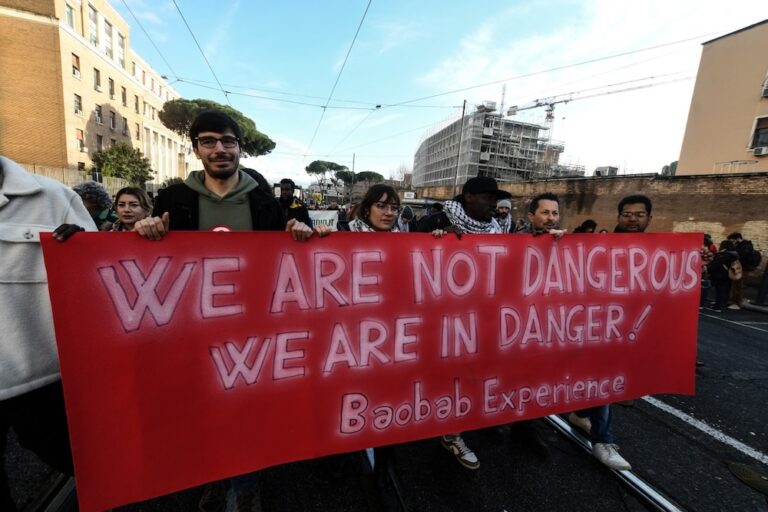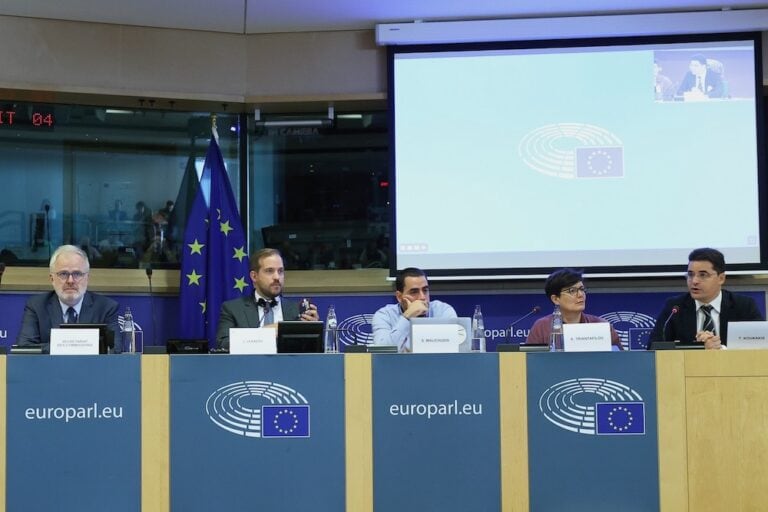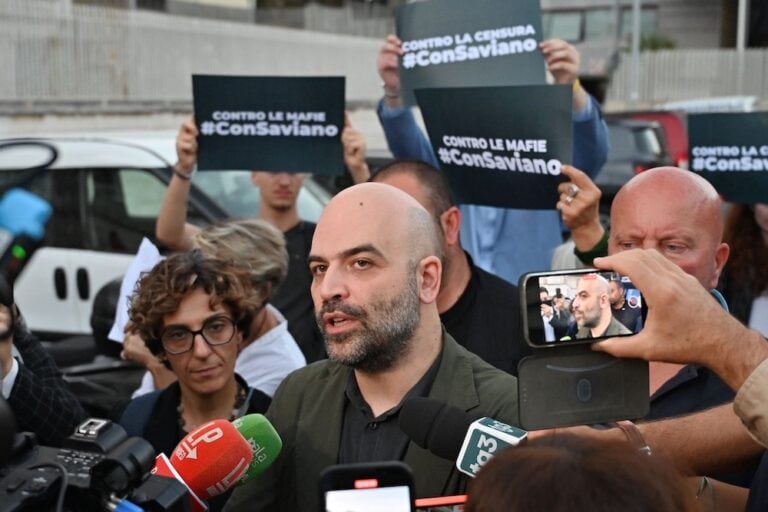(RSF/IFEX) – On 11 October 2002, RSF condemned the state-owned RAI broadcasting network’s ban on a special episode of the satirical programme “Blob”, which focused on Italian Prime Minister Silvio Berlusconi. The organisation described the move as “a deliberate attempt to bring the state-owned TV station to heel.” “Banning a quality satirical programme such as […]
(RSF/IFEX) – On 11 October 2002, RSF condemned the state-owned RAI broadcasting network’s ban on a special episode of the satirical programme “Blob”, which focused on Italian Prime Minister Silvio Berlusconi. The organisation described the move as “a deliberate attempt to bring the state-owned TV station to heel.”
“Banning a quality satirical programme such as ‘Blob’ because it criticises the prime minister too often is plain and simple censorship,” said RSF Secretary-General Robert Ménard in a letter to RAI 3 director-general Agostino Saccà. “This move further tarnishes the image of Italy, which is already the only country in the European Union where media diversity is under threat. We urge you to reverse this decision and allow the programme to air,” Ménard added.
Saccà refused to allow the airing of the third episode of the satirical series “Blob” to go ahead, saying that four 40-minute programmes devoted to the prime minister in the space of a week was “perhaps a bit much.” It was not a case of censorship, he said, but simply the result of “a discussion” he had had with RAI 3 director Paolo Ruffini.
The programme, “Berlusconi Against Everyone”, which had been scheduled to air on 8 October, focused on the prime minister’s mannerisms during press conferences and as a participant on television shows. The programme comprised a montage of film clips aired without comment.
“Blob” producer Enrico Ghezzi said the RAI directors did not watch the programme before issuing the ban. “It is rather shocking to pre-censor a programme that is simply comprised of film clips that have already been broadcast,” he said. “They acted as if they thought the pictures of Berlusconi were in themselves a criticism,” Ghezzi emphasised.
The political programmes of opposition journalists Michele Santoro and Enzo Biagi, “Sciuscià” and “Il Fatto”, respectively, were dropped from RAI’s programming schedule earlier this year, after Berlusconi harshly criticised them (see IFEX alerts of 7 August, 2 July and 26 June 2002).
RSF denounced the move against programmes that were especially critical of the government. The organisation recalls that the three RAI channels play a key role in maintaining broadcasting diversity in Italy. Berlusconi controls the country’s three main privately-owned national television stations via the broadcaster Mediaset.


